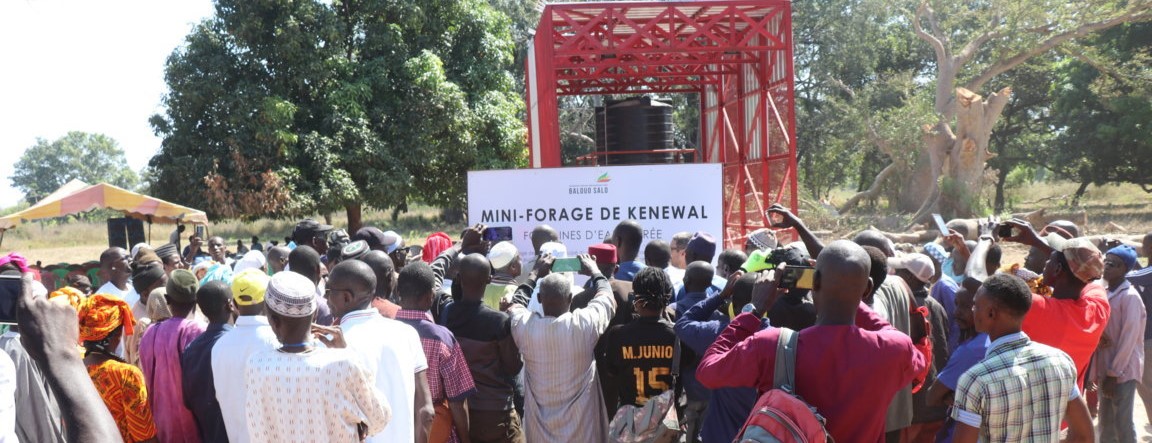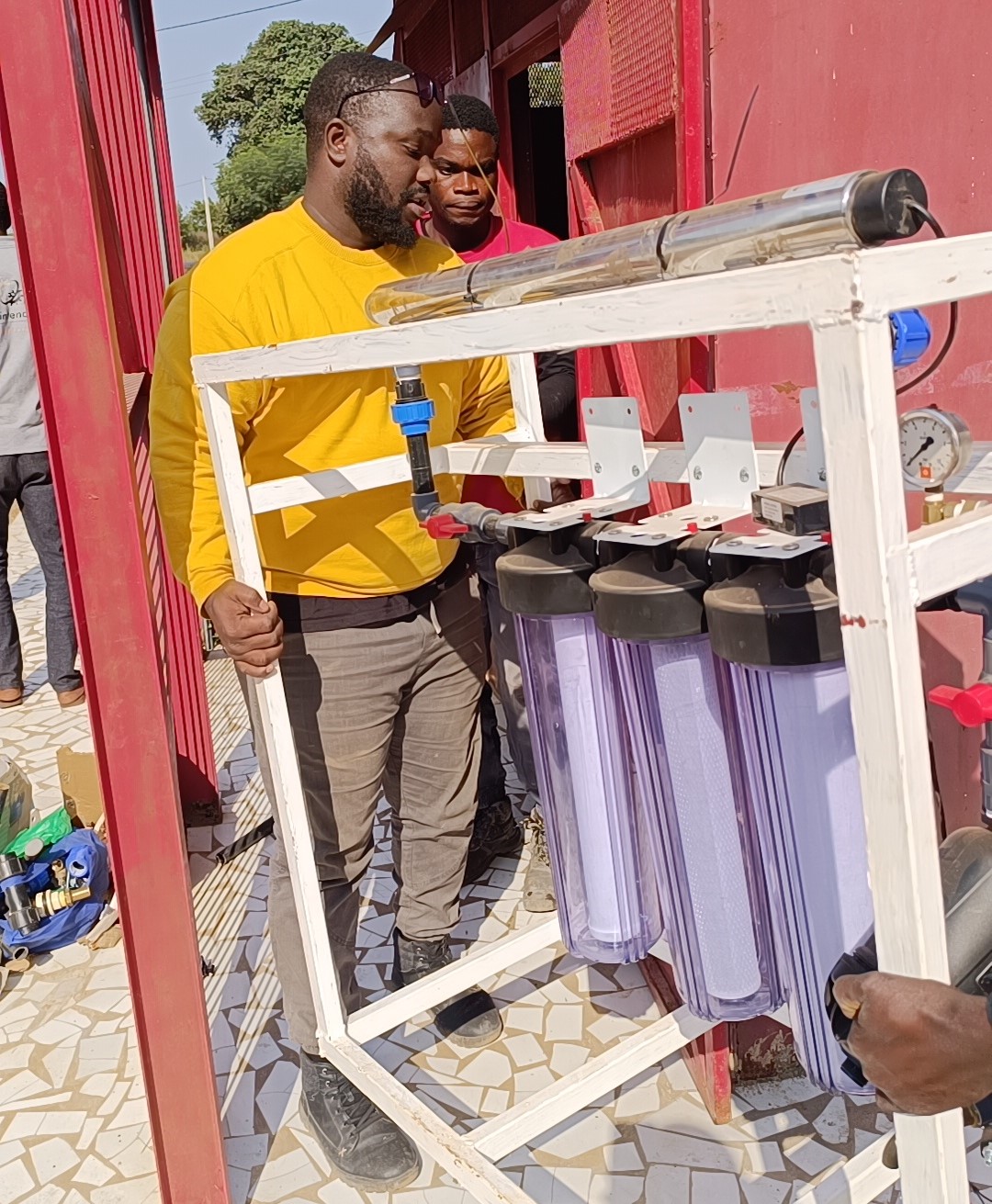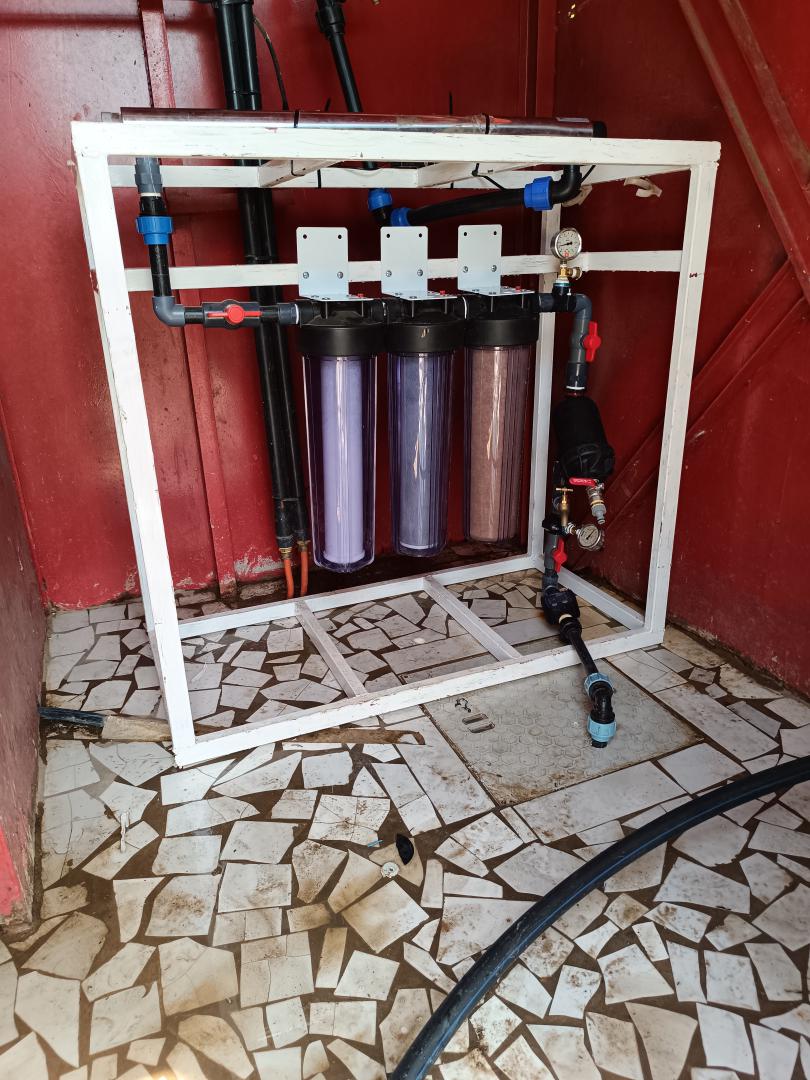
Deep Well in Kenewal
Access to Drinking Water
Kenewal, Senegal

In the village of Kenewal, the population lived in critical conditions, drawing water from contaminated shallow wells and facing serious health emergencies. Our intervention enabled the construction of a 40-meter deep borehole, equipped with a solar-powered submersible pump and an advanced filtration system with osmosis and UV sterilization.
Thanks to this infrastructure, today over 1,500 people can access safe drinking water free of charge every day, reducing the risk of disease and saving hundreds of lives, especially children’s. The project represents a fundamental step towards greater health, resilience, and sustainability for the entire community.
The story of the project, from construction to inauguration
.JPG)
— Souleymane, Kenewal (Senegal)
Discover the project.JPG)
Provide a free and sustainable system for safe water access to over 3,000 people in Kenewal, with positive impact on other villages in the Baghere Municipality.
Eliminate up to 70% of infections caused by contaminated water, such as diarrhea, giardia, and cholera, protecting the most vulnerable: children, pregnant women, and the elderly.
Use exclusively solar energy for pumping and water purification, in a fragile climatic and environmental context, reducing ecological impact.
Involve the local population in well management, plant maintenance, and hygiene awareness.
.JPG)
.JPG)
In the rural village of Kenewal, in southern Senegal, access to drinking water was one of the most urgent and dramatic challenges. Before the intervention, the population only had a shallow artisanal well, frequently contaminated and subject to drying up during the dry season. The lack of safe sources exposed the community daily to extreme health risks: over 56% of diseases recorded in the area were linked to consumption of unsafe water, with particularly severe impacts on children, pregnant women, and the elderly.
Water collection was an exhausting task mainly carried out by women and children, who walked kilometers under the sun, sacrificing precious time for education and work. The impact on health, nutrition, and development was deep and systemic, making the project not only necessary but absolutely a priority.
Thanks to the intervention by Balouo Salo, today Kenewal has a modern and autonomous infrastructure: a deep well over 40 meters, powered by solar energy and equipped with an advanced water purification system. Water is freely available 24/7 in a safe and accessible environment for all.
The project has transformed the lives of over 1,500 direct beneficiaries and created a positive impact on more than 3,000 people in neighboring villages or transient users. It is not only a response to an essential need, but a permanent safeguard against waterborne diseases, a lever for reducing infant mortality, and a concrete symbol of dignity, autonomy, and community development.
The deep well of Kenewal represents an example of sustainable and integrated water infrastructure, specifically designed to meet the needs of a rural area with high water vulnerability. The drilling reached a depth of over 40 meters, protected by high-resistance PVC piping. Water extraction is ensured by a submersible pump with a capacity of 7 m³/h, powered by an autonomous 3kW photovoltaic system, allowing continuous and sustainable operation.
Water purification systems
The extracted water is treated through an advanced filtration system: carbon filters, microfilters, and UV sterilization. The treated water is stored in reservoirs for daily use via public fountains. The water meets WHO health standards for potability.
Community management and inclusion
The facility includes a covered area with multiple taps, lighting, safe flooring, and spaces for community gatherings. The architecture recalls symbols of local tradition and creates a place of respect and inclusion.
See photos

The Kenewal project has radically changed the living conditions of an entire community. Stable and free access to drinking water has improved public health, freed up time for women, and strengthened social inclusion.
Village of Kenewal
Baghere Municipality
Sédhiou Region
Senegal, Africa
.JPG)
In the village of Baghere, before the deep well arrived, clean water was a distant dream. Women spent hours every day collecting water from contaminated wells, putting the health of their entire families at risk. Children often skipped school to help with this daily hardship, and waterborne diseases were a constant threat, causing suffering and losses that were hard to accept.
Today, thanks to the Balouo Salo project and generous donors, Baghere has a safe source of drinking water, accessible for free 24 hours a day. This has transformed the lives of over 1,500 people, with benefits extending to more than 2,000 inhabitants of nearby villages.
Children can finally attend school without worries, women give birth in safer conditions, and the entire community enjoys better health. The well is not just infrastructure: it is a symbol of hope, resilience, and lasting change.
 (1).jpg)
.JPG)
.JPG)
 (1).jpg)
.JPG)
.JPG)
.JPG)
 (1).jpg)
 (1).jpg)
.JPG)
.JPG)

.JPG)
 (1).jpg)
.JPG)
.JPG)
 (FILEminimizer).JPG)

.JPG)
.JPG)
.JPG)
.JPG)
.JPG)
.JPG)
.JPG)
.JPG)
.JPG)
.JPG)